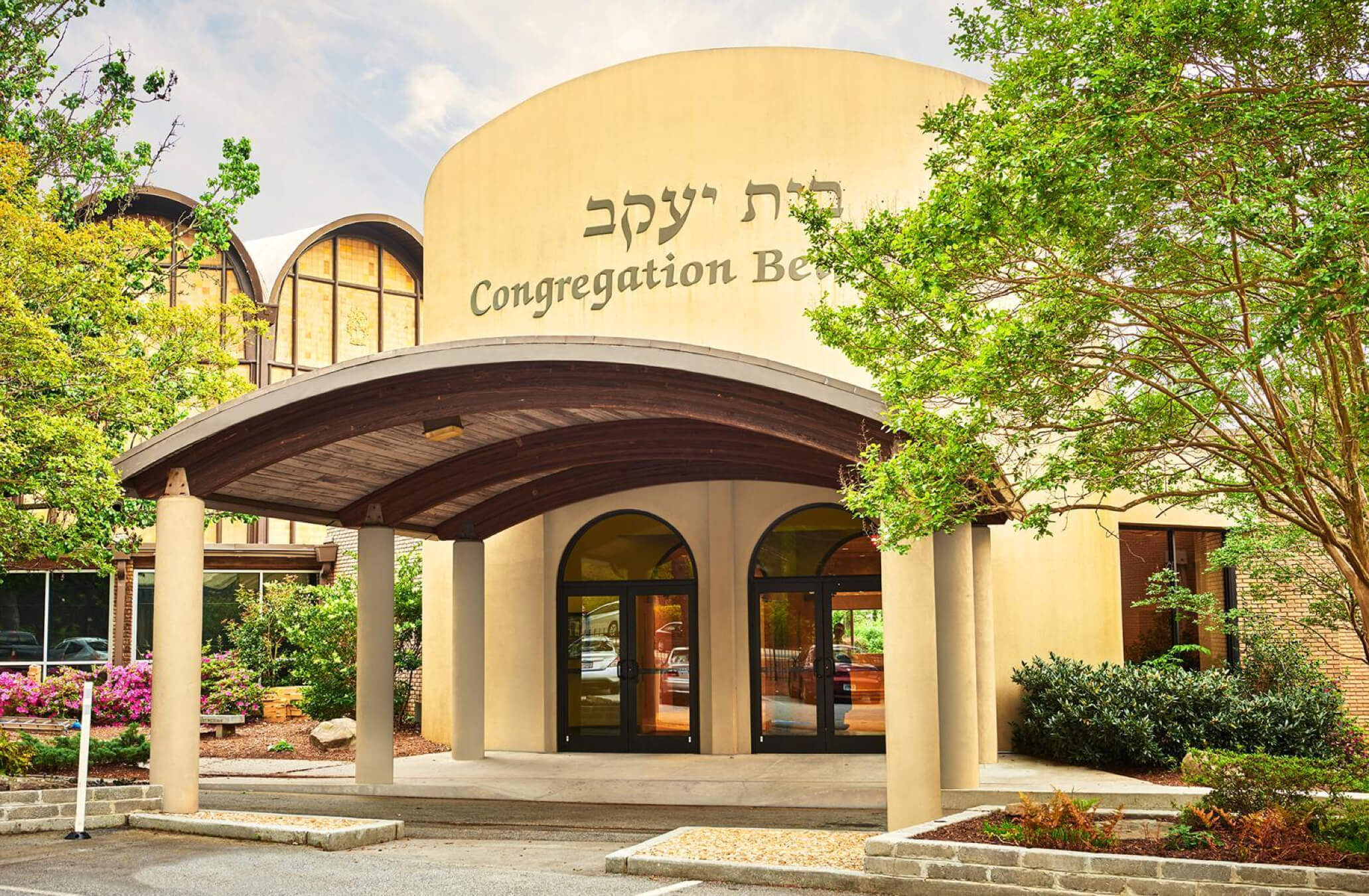A synagogue plans to sue a cemetery that rejects its burial practices
Members of Congregation Beth Jacob in Atlanta have said a rule barring temporary grave markers defies Jewish law

Graphic by Angelie Zaslavsky
For more than 60 years, members of Congregation Beth Jacob, an Orthodox synagogue in Atlanta, have buried members and their relatives in the synagogue’s section of historic Crestlawn Cemetery. But a bitter battle has now erupted over a new cemetery rule that bars families from installing temporary grave markers while they wait for headstones to be made.
“We explained to Crestlawn over and over that what might seem like a small matter for them holds deep significance both halachically [according to Jewish law] and soulfully for us,” Yisrael Herscovici, the congregation’s president, wrote in a letter to congregants Friday.

The leadership of the 80-year-old synagogue accused the cemetery, the final resting place of Jews and non-Jews, of singling its congregants out and telling them how to practice their religion. The president of the cemetery management company, however, alleges that the synagogue is insisting on the markers to preserve a financially beneficial relationship with a company that makes headstones. The synagogue’s rabbi vehemently denies this.
Now two congregants, attorney David Schoen, who defended former President Donald Trump in his second impeachment trial, and Mark Goldfeder, a former law professor who leads the National Jewish Advocacy Center, said they are preparing a federal suit on behalf of the synagogue that they plan to file this month.
No more exceptions
“For 3,000 years Jews have required temporary markers,” said Schoen. The new rule, he continued “is particularly painful for survivors of the Holocaust and survivor family members. Having unmarked graves for their loved ones is a very sensitive subject.”
He said that the cemetery filed a rule change with the Georgia Secretary of State over the markers, but that it’s meaningless because state law requires burials to be consistent with religious practices and traditions.
Blake Blomquist, who identified himself as the owner of the cemetery’s management company, wrote in an email Tuesday that although the cemetery’s rules forbid temporary markers, exceptions have been made over the years. But management decided as of Aug. 1, he continued, that there would be no more exceptions.
He said in a phone interview later that day that the synagogue’s intransigence over the markers comes down to money. He alleged that someone at the synagogue gets a commission for sending families of the bereaved to a particular company to buy their headstone. The reason the synagogue needs the temporary markers, he said, is so families can wait for this company to make and deliver the headstones.
“Everybody over there at that synagogue has got their fingers in the cookie jar,” he said.
Rabbi Ilan Feldman, the spiritual leader of the synagogue, which has 540 member families, rejected the accusation and said Beth Jacob tried to accommodate Blomquist.
“We do not make money on any of this,” Feldman said. “We proposed a solution in which we would direct everybody to him — buying the markers and headstones from him. So it is not a question of money.”
“We are not accusing the cemetery of being antisemitic,” the rabbi added. “We are saying they are not allowing us to do what we need to do and that has the effect of limiting our practice of our religion.”
Who is buried where?
Schoen said that when he visited the cemetery recently he was unable to tell where recently interred people were buried. He took a video of the graves in which he pointed out their lack of markings, and how it was impossible for him to tell where plots began and ended.
Blomquist wrote that a temporary marker does not serve to verify a particular grave because it can be moved. Visitors often bring children who could pick up the markers and move them, he added, and their parents could then plant the markers in the wrong spot.
“This is one of the countless examples why temporary markers have been prohibited in Crestlawn and many other cemeteries across the nation for many decades,” he wrote.
Glenn S. Easton, executive director of Garden of Remembrance Memorial Park in Clarksburg, Maryland, said he has been “dealing with cemeteries nationwide for over 40 years and I have never heard of a cemetery that prohibits the use of a cemetery marker.”
David Fleming, legislative director of the New York State Association of Cemeteries, said that within his state, “I am unaware of anyone banning them.”
Jewish law — or tradition?
Blomquist took issue with the lawyers’ contention that he is making it impossible for Jews to follow Jewish law by forbidding the markers. He wrote that he checked with a prominent rabbi in Israel and discovered that it “is NOT law,” but only a preference of some Jewish communities.
Goldfeder said that federal law recognizes “no difference between religious tradition and religious law if it is seriously held.” That’s true, he said, even if his synagogue were “the only synagogue in the world that held this.”
He said the use of a temporary marker, which he called a “very old Jewish tradition,” exists in part because kohanim (descendants of the sons of Aaron) are not allowed to walk over a grave and because it is generally considered disrespectful to the dead.
Goldfeder said he does not know why the cemetery is not bending on the issue.
“We are asking to be allowed to pay them to have a name on a stick saying here lies such and such until the time comes to put up a headstone,” he said. “People bought plots there with the understanding that their religious traditions would be respected. This is a fight that seems so unnecessary.”






















